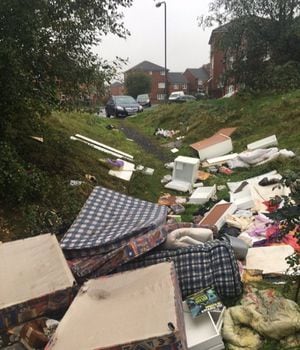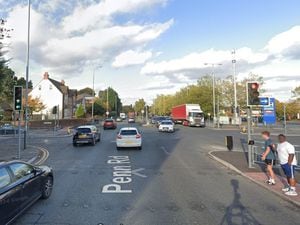West Midlands fly-tipping fines hit £120,000
Fly-tippers in the West Midlands were fined a combined £120,000 in the past year – up from just £12,000 four years ago, according to new figures.

Local authorities across the region secured 295 fly-tipping prosecutions in 2016-17, up from just 67 in 2012-13.
Statistics released by the Government show a fly-tipping fines in the Midlands totalled £123,318 in 2016-17, a huge rise from 2012-13 when the combined fine was £12,954.
The West Midlands has bucked the national trend, which has seen the number of successful prosecutions brought by councils against fly-tippers fall to a record low.
There were more than one million fly-tipping incidents in England in 2016-17, equivalent to 114 every hour according to figures published by the Department for Environment, Food and Rural Affairs (Defra).
Nationally the number of fixed penalty notices issued to fly-tippers has more than doubled, with 55,997 notices being handed out in 2016-17 across England.
In the West Midlands 166 FPNs were dished out in 2012-13 –rising to 1,154 in the latest year.
Among the Black Country authorities handing out the fixed penalty notices is Sandwell Council, which secured 30 fines for fly-tipping in less than five months after launching a crackdown.
The thirtieth £400 fixed penalty was handed out in October after a man admitted dumping a black bag among rubbish off Whitehouse Drive in Smethwick.
Councillor Elaine Costigan said: “A combination of rapid enforcement as well as putting cameras in hotspots seems to be making a real difference – fly-tipping reports have fallen sharply, they are down 13 per cent across Sandwell and in Smethwick we have seen a reduction of around 40 per cent.
"Fly-tipping is unsightly and anti-social. There really is no excuse for dumping rubbish on our streets and open spaces.
“It’s also an unnecessary financial burden on council taxpayers."
The Local Government Association (LGA), which represents councils, has called for a 'more effective legal system'.
Martin Tett, the LGA's environment spokesman, said: "Litter and fly-tipping is environmental vandalism.
"Clearing up fly-tipping is costing councils more than £57m a year, money that could be spent on other services, like caring for the elderly, protecting children or tackling homelessness.
"The government has responded to our call for councils to be able to apply fixed penalty notices for small scale fly-tipping – and this is a big step in the right direction.
"When they take offenders to court, councils need a faster and more effective legal system which means fly-tippers are given hard-hitting fines for more serious offences."
A Defra spokesman said: "Fly-tipping is an unacceptable blight on our landscape, which is why we have cracked down on offenders by working with the Sentencing Council to strengthen sentencing guidelines and given councils the powers to hand out on-the-spot fines to fly-tippers.
"We have made it easier for vehicles suspected of being used for fly-tipping to be stopped, searched and seized and will continue to work with local partners to stop this inexcusable crime."





